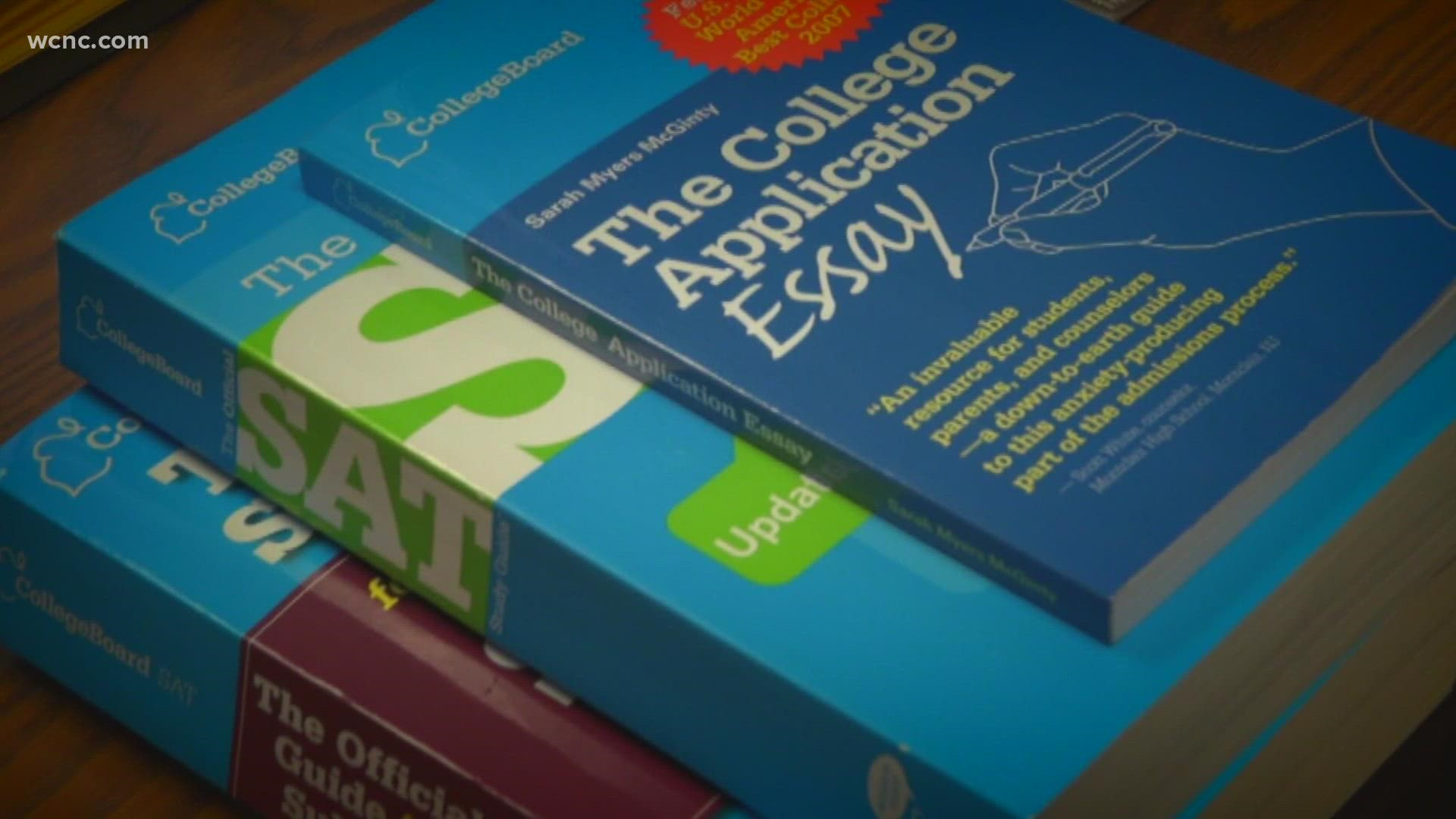CHARLOTTE, N.C. — Imagine you're the parent of a high school junior about to take her SATs next month. Even though you know your student has studied for the test, as a parent, you’re still worried.
It makes sense. There's so much riding on this one test. Getting the best score possible could be the difference between getting into a good college or getting left behind.
So when you receive a phone call from someone claiming to be from the College Board offering to send free test-prep materials, it's tough to turn that down.
Cybersecurity expert Scott Cederbaum warned that's when the scam happens.
“It’s really disappointing because you know the SAT and the PSAT are obviously really important to parents and teenagers alike," Cederbaum said. "They’re using it to be able to prove that they’re ready to go onto their dream college so getting a phone call from someone pretending to be the college board is obviously really easy to believe."
It’s evident so many parents did just that.
The Better Business Bureau’s Scam Tracker website displays numerous complaints from parents who tell a similar story of being targeted by criminals claiming to be from the College Board, the organization behind the SAT, and PSATs only to be conned for credit card information.
Here's how the scam works: The caller tells the parent that their child requested study materials and says the test prep materials are free but eventually will need to be returned.
The caller then asks for a credit card saying it won’t be charged, it’s just needed in the event the materials aren’t returned. The problem is, the parent won't ever receive the promised test-prep materials and they've just given their credit card information to a complete stranger.
“When they’re offering you training services to make it more likely that your child is going to do well on these life-changing examinations of course it’s going to be really compelling to trust them and ultimately hand over credit card information," Cederbaum said.
That's how these college-prep predators separate you from your money -- by preying on a parent’s best intentions.
“That’s absolutely the hook and then it, you know, turns into any other phone scam where ultimately a person or persons or company that you haven’t verified is asking you for credit card information over the phone,” Cederbaum said.
Cederbaum said it's important to know one thing: the College Board wouldn't be calling you like this in the first place.
"The reality is that no one from the College Board, and really no one you should trust, should ever be making a phone call to you asking for your credit card information,” Cederbaum said.
If one of these unsuspecting parents gave these criminals debit card information, things could be much worse.
"It’s touching your own income, so while you’re waiting for the bank to refund that money, that could prevent you from being able to make a mortgage payment or rent payment or paying for your electricity,” Cederbaum warned.
The bottom line?
"Just be being hyper-vigilant, the process is stressful enough," Cederbaum said. "You know, if you get a phone call, just don't trust that the person on the phone is actually who they say they are.”
Contact Carolyn Bruck at cbruck@wcnc.com and follow her on Facebook, Twitter and Instagram.

